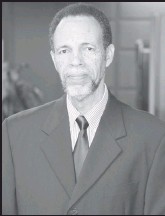Commend Iraqi Prime Minister Adel Adbul Mahdi
Changing the Paradigm. A 21st Century Giant Step Forward
in Inclusion and Diversity.
Youth, Next Generation Leaders play an important
role.
BEMA
International
|
In a statement on his personal Facebook account,
Mr Abdul Mahdi invited "those with expertise, specialisation and
practical experience" to come forward.
Iraq's Prime Minister-designate Adel Abdul
Mahdi has launched a website to allow Iraqis to apply for ministerial
positions in his new cabinet.
They have until Thursday to submit a CV and
evidence they meet his conditions.
Mr Abdul Mahdi was asked to form a new
government last week, ending months of deadlock after inconclusive elections.
The independent Shia Islamist politician -
who has a PhD in economics and has served as vice-president, oil minister and
finance minister - was nominated by the two Shia-led blocs that won the most
seats in parliament in May.
He will have to oversee the reconstruction
of Iraq following the four-year battle against the jihadist group Islamic
State (IS), which left tens of thousands of homes and business destroyed and
displaced more than three million people.
Mr Abdul Mahdi has until 1 November to form
a government.
In the Facebook post, the prime
minister-designate said he had decided to open up the ministerial recruitment
process following a "number of requests for direct personal meetings
either to offer congratulations, present programmes and ideas or to apply for
ministerial posts".
The
website Iraqcabinet2018.com says men and women who
"meet all the conditions stipulated in the constitution and enforced
laws" have until 16:00 (13:00 GMT) on Thursday to submit applications.
Hopefuls must provide their personal details, state whether
they belong to any political party, and then say which ministry they would
like to lead.
They are
also required to describe the most important projects they have overseen,
outline their thoughts on what makes a successful leader, and then detail the
practical solutions they would propose to tackle the problems their chosen
ministry is facing.
Previous
Iraqi governments have been plagued by corruption, mismanagement,
politicisation and sectarianism.
Outgoing
Prime Minister Haider al-Abadi sought to replace ministers who were political
appointees with unaffiliated technocrats, but faced stiff resistance from
parties in his ruling coalition.
Parliament's
failure to approve a non-political cabinet helped trigger protests in 2016
and prompted Mr Abdul Mahdi to step down as oil minister, a decision he said
was aimed at "confronting an atmosphere of anxiety of chaos".
|



